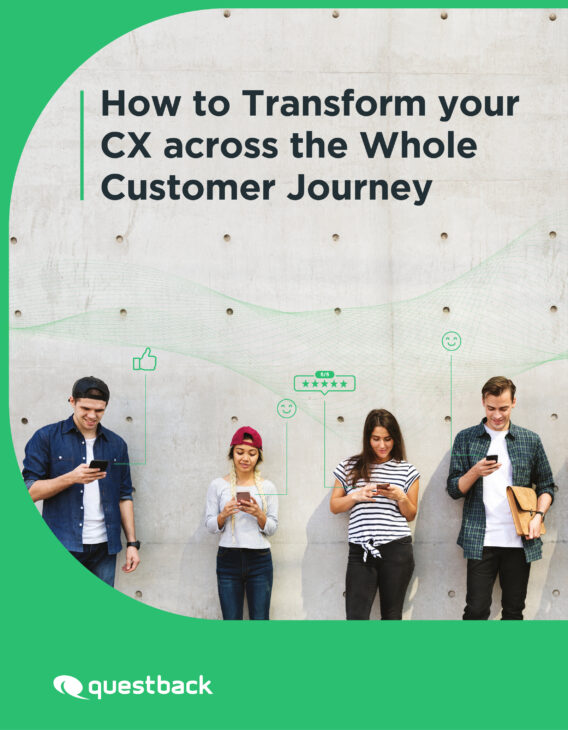In today’s rapidly changing business environment, choosing the right feedback solution is crucial for organisations looking to stay ahead of their competition. A well-implemented feedback system can help improve employee satisfaction, customer experience, and overall performance. However, there are common mistakes that businesses often make when selecting a platform, and this article highlights five common mistakes to avoid when choosing a feedback solution.
1: Focusing on price over value
While it’s essential to consider your budget constraints, focusing solely on the cost of a feedback solution may lead you down the wrong path. Instead, assess each option based on its potential return on investment (ROI). Look at factors such as ease of use, scalability, data analysis capabilities and integration with existing systems – these aspects will impact the long-term benefits you receive from your chosen platform.
2. Ignoring customisation options
Every organisation has unique needs; therefore, it’s essential not just to select any off-the-shelf product but to find one tailored specifically to meet those requirements — present and future ones alike! A good feedback solution should allow customisation so users can create survey questions to align their objectives and goals while still providing standardised templates. One factor often overlooked is the possibility of getting started quickly if desired. Will internal experts do all the work, or do you want an easy-to-use feedback system that multiple managers use?
Takeaway:
- Seek solutions that offer flexibility in survey design and customisation options.
- Ensure your chosen platform can adapt as your organisation grows or changes direction.
3. Overlooking data security and privacy concerns
Data security is paramount in today’s digital world, where breaches can cause irreparable financial and reputationally damage! Make sure to evaluate the vendor’s commitment to protecting sensitive information ensuring compliance with regulations like GDPR and other applicable laws. Do they have local servers in your country or the EU?
Takeaway:
- Choose a feedback solution with robust security measures and data protection policies.
- Ensure the vendor is compliant with relevant privacy regulations.
- Make sure that they have a GDPR solution for you to save your collected answers compliantly.
4. Neglecting user experience
Ease of use plays a vital role in employee engagement and adoption rates for your chosen platform. A feedback solution that is difficult to navigate or overly complex will likely discourage participation, leading to less accurate insights, ultimately affecting decision-making processes negatively and overall performance organisation-wide!
Takeaway:
- Prioritise usability during the selection process.
- Consider conducting pilot tests among employees before committing fully to ensure all parties’ best-fit needs.

5. Failing to consider support services
Lastly, remember to evaluate the level of customer technical support the provider offers; after-sale matters! Are there quality training resources available? How is the onboarding process? Do they have local support in your language? If issues arise during implementation, will they offer technical support for free?
Takeaway:
- Evaluate the quality of customer support provided by potential vendors.
- Look for comprehensive training materials and responsive assistance throughout your partnership.
In conclusion, avoiding these common mistakes can help you make a more informed decision when choosing a feedback solution for your organisation. By focusing on value over price, prioritising customisation options, ensuring data security compliance, and good user experience while also considering the offered quality of support services provided – you’ll position yourself to achieve maximum ROI from the investment and set up a long-lasting successful relationship between you and the platform choice.
FAQ
Common mistakes include prioritizing cost over value, overlooking integration capabilities, choosing a solution that lacks customization, not considering scalability, and ignoring the importance of data security.
Focusing on value ensures that the solution provides essential features, quality support, and efficient implementation that aligns with your company's long-term objectives, while cost-focused decisions may lead to sacrificing important functionalities.
Integration is vital as it allows your feedback solution to seamlessly work with your existing systems, streamlining processes and enabling you to make more informed decisions based on the collected data.
Q: Why should customization be a consideration when selecting a feedback solution?
Scalability ensures that the solution can adapt to your organization's growth and changing needs, allowing you to consistently gather valuable feedback and insights without the need for frequent system overhauls.
 Elias works as a Marketing Project Manager at Questback and has worked with marketing in HR/ HR-tech since 2017 after an examination from Stockholm University.
Elias works as a Marketing Project Manager at Questback and has worked with marketing in HR/ HR-tech since 2017 after an examination from Stockholm University.




